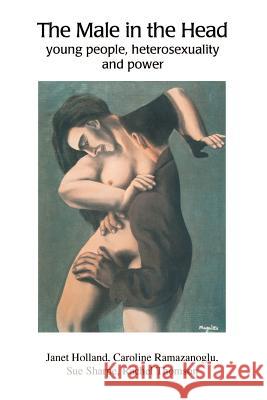The Male In The Head » książka
The Male In The Head
ISBN-13: 9781872767475 / Angielski / Miękka / 2004 / 232 str.
Young people talk frankly, eloquently and often movingly about sex and relationships in this detailed investigation of the social construction of sexuality. Drawing on empirical studies the authors develop a feminist theory which shows the power of heterosexuality as masculine, and the relevance of this power to young people's management of sexual safety. Based on research into young people's sexual cultures undertaken over ten years, the authors argue that 'sexual activity and empowerment do not necessarily go hand in hand'. While a minority of young people succeed in negotiating safe and pleasurable sexual relationships, for many the experience of adolescent sex continues to be 'nasty, brutish and short'. Old taboos about premarital sex may have been broken, but old ideas about sex being a man's pleasure and a woman's duty live on. Young women are left with the worst of both worlds. They are expected to be sexual but not taught to enjoy it, vulnerable to pregnancy but not in control of sexual safety. When it comes to sex young women have a 'male-in-the-head', a voice that tells them that using condoms 'is like chewing toffee with a wrapper on' and that sex is finished 'when he has finished'. Despite the effects of feminism, boys do not yet have a 'woman-in-the-head'. Even those 'new men' and 'new lads' who recognise that women have changed are still liable to revert to double standards when it comes to sex. As one young man points out 'I don't believe in sex differences ... but you can't go to bed with someone the first time you get off with them and expect them to give you respect and love, you can't have it both ways'. Women still can't have it both ways but men can-just. The evidence from this study suggests that times are changing, that femininity is moving on and that masculinity is dragging its feet. While girls are outstripping boys in the classroom and the workplace, they are still being kept in their place in the bedroom.
Young people talk frankly, eloquently and often movingly about sex and relationships in this detailed investigation of the social construction of sexuality. Drawing on empirical studies the authors develop a feminist theory which shows the power of heterosexuality as masculine, and the relevance of this power to young peoples management of sexual safety.Based on research into young peoples sexual cultures undertaken over ten years, the authors argue that sexual activity and empowerment do not necessarily go hand in hand. While a minority of young people succeed in negotiating safe and pleasurable sexual relationships, for many the experience of adolescent sex continues to be nasty, brutish and short.Old taboos about premarital sex may have been broken, but old ideas about sex being a mans pleasure and a womans duty live on. Young women are left with the worst of both worlds. They are expected to be sexual but not taught to enjoy it, vulnerable to pregnancy but not in control of sexual safety.When it comes to sex young women have a male-in-the-head, a voice that tells them that using condoms is like chewing toffee with a wrapper on and that sex is finished when he has finished. Despite the effects of feminism, boys do not yet have a woman-in-the-head. Even those new men and new lads who recognise that women have changed are still liable to revert to double standards when it comes to sex. As one young man points out I dont believe in sex differences ... but you cant go to bed with someone the first time you get off with them and expect them to give you respect and love, you cant have it both ways.Women still cant have it both ways but men can-just. The evidence from this study suggests that times are changing, that femininity is moving on and that masculinity is dragging its feet. While girls are outstripping boys in the classroom and the workplace, they are still being kept in their place in the bedroom.











